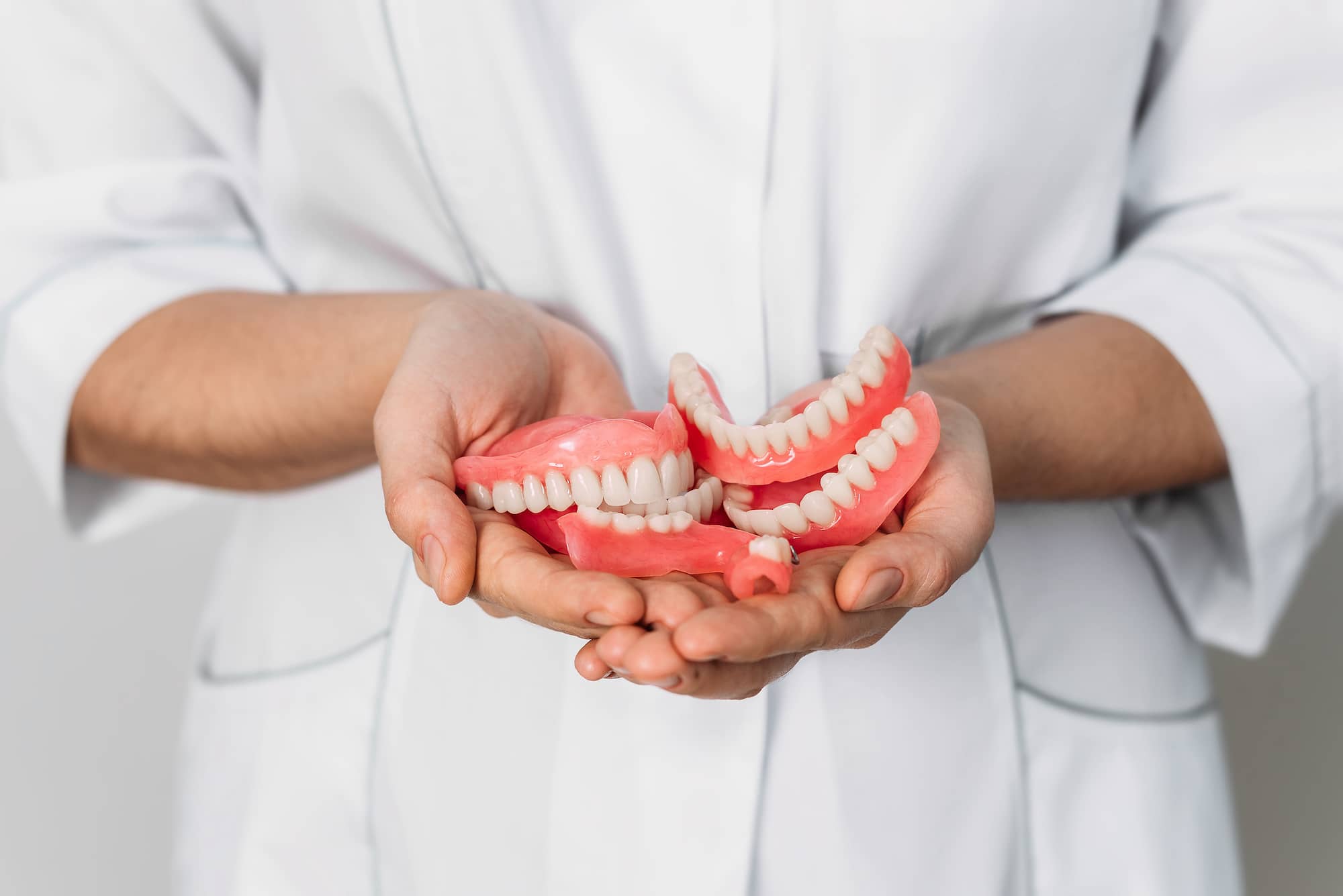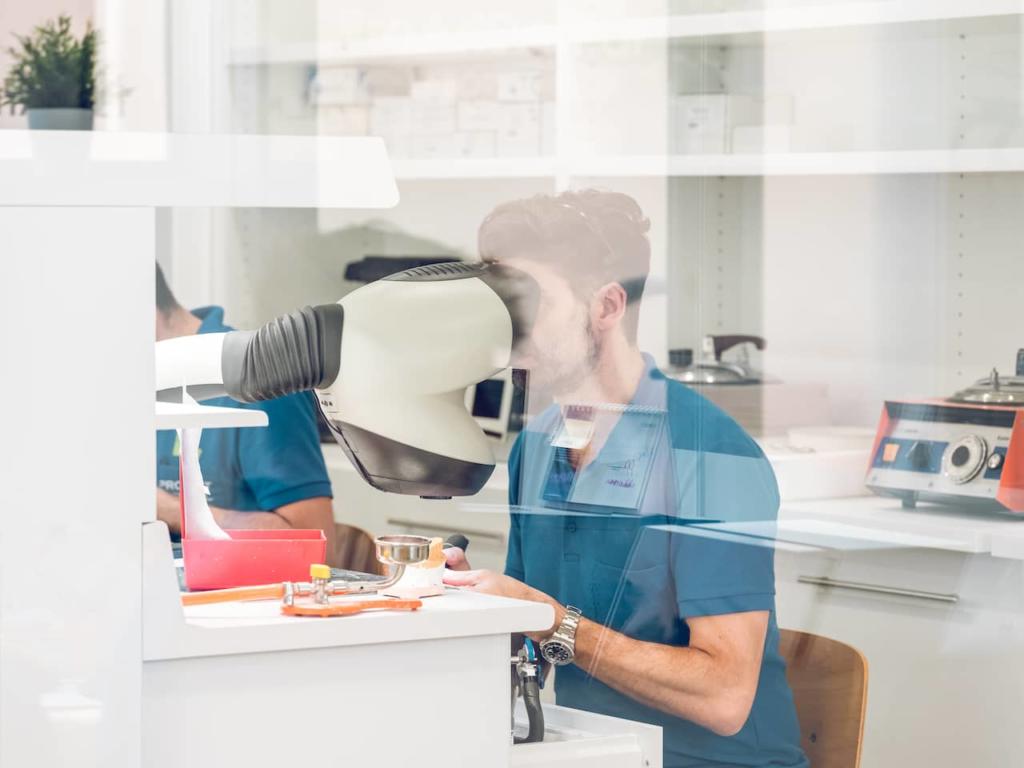
Can I Reline My Dentures at Home? Read This First
By David Hudnall, DMD
Everyone wants to save a buck. From cutting your own hair to playing internet physician, people often go to great lengths to take care of problems themselves. How hard could it be? After all, there are YouTube videos demonstrating how to do almost anything that you can imagine. When it comes to health, sometimes home remedies will steer you in a direction that actually leads to having a bigger problem or costs more money than if you had sought professional help in the first place.
DIY denture relining is a topic of great interest to denture wearers. Internet videos can make it look like anyone can do it at a much lower cost than going to a dental office. But relining dentures at home doesn’t always work out well.
Before you consider yourself an expert on the topic of everything you need to know about denture relines, realize there are a number of things that can go wrong that can cost you time, money, your ability to wear your dentures, and your health.
What Is Denture Relining?
Relining dentures involves adding new material to the inside surface of a denture in order to improve its fit. There are multiple types of reline materials available to satisfy different needs and purposes. Permanent relines usually involve the denturist taking a thin impression inside of the existing denture.
The denture is then sent to a dental laboratory where new pink acrylic material is used to fill in the gaps in the areas where the gums have changed, thus improving the fit. Most laboratory relines can be performed within the same day if the patient arrives early in the morning, allowing the dental client to have their denture returned to them by the end of the business day.
While lab-processed relines last longer and restore the denture to its original condition, they are not the only type of reline available. A chairside acrylic reline is an in-office alternative and a shorter-term solution when the patient is unable to be without their denture at all. The downside is the reline material does discolor and will flake and wear out with time.
Soft relines are appropriate for patients who have extremely sensitive tissue or excessively resorbed ridges. They act to cushion the denture, allowing the tissue to take less of a beating when chewing. The downside of soft relines is they are difficult to care for and they do wear out rather quickly, requiring their replacement.
Finally, a temporary soft reline is meant to help improve the health of the soft tissue before having a new denture made. Many times, patients will wear ill-fitting dentures far too long and irritate their gums to the point that the swollen tissue needs to be addressed first. A temporary tissue conditioning reline is chosen for this purpose.
Can You Reline Dentures Yourself?
Can you reline your own dentures? You can, but it is never recommended or advisable to reline dentures yourself. There are specific reasons for relining ill-fitting dentures and there are certain situations where a reline is not going to solve the problem. Only a dental professional can examine your unique situation and advise you accordingly.
In addition, you really must know what you are doing in order to successfully reline a denture. It is very difficult to reline dentures yourself because you can’t see what you are doing. If the denture isn’t seated correctly with the reline material in place, you can ruin the look of your denture and actually make the fit worse.
If you don’t care if you mess up your denture, by all means, have at it. But be prepared to purchase a new denture. It’s much better to trust a denturist to perform the reline procedure. They have the knowledge and the experience necessary to do it correctly the first time.

Why You Should Not Reline Dentures at Home
Most DIY reline kits available to the consumer consist of some form of a temporary soft reline material that allows the excess to be trimmed with scissors or a knife. Still, most of these kits are made to look like they are foolproof but can be fraught with problems if you don’t know what you are doing. Here’s a discussion of what can go wrong:
You Can Ruin Your Dentures
DIY denture relining materials are made to solidify with the heat in your mouth. Determining the appropriate amount of material to place inside of the denture is difficult. Add to that the additional complication of the limited working time once the material is mixed. If you use too little material, the reline is incomplete and doesn’t flow over the entire inner surface. If you use too much, you may not be able to get the denture positioned correctly in your mouth. This can result in changing the look of the denture. Once the reline material sets, it is usually not possible to remove it and return your denture to its original condition.
It Can Cause Pain
Relining a denture requires a clean-up procedure to remove excess solidified material from the borders and the outside surfaces of the denture. You just don’t have the right tools to do this correctly using a DIY denture relining kit. Being unable to smooth and polish the denture to a high shine can lead to wearing a denture with sharp edges that can cut into your mouth.
It Can Be Hard to Chew
If you can’t chew or close your lips correctly after performing a reline, the denture was not fully seated and the bite has been affected. Trying to correct this at home is impossible. Fact facts. Your denture has been ruined and you need a new one.
It Is a Temporary Solution
All relines, whether performed by a dental professional or at home, are a temporary solution meant to extend the life of your existing denture. Some types of reline materials are more temporary than others. DIY denture relining products do not have the longevity of laboratory-processed relines performed by dental professionals.
If you think you are saving money by relining dentures at home, remember you get what you pay for. The dental professionals at European Denture Center are happy to evaluate your current dentures and see if a reline is the right solution for you.
Have Your Dentures Professionally Relined at European Denture Center
A reline could be the best longer-term solution for you if your denture is slightly loose but the teeth and denture acrylic are still in relatively good condition. It is never a good idea to attempt to reline a denture that doesn’t fit reasonably well, is excessively worn, or is old and brittle. The caring denturists at European Denture Center will determine if the life of your current denture can be extended with a denture reline. A reline is not always the best solution in every situation and new dentures are often the better choice. See all of our denture offerings, including our 3D digital dentures, when you visit our website at eurodenture.com.


